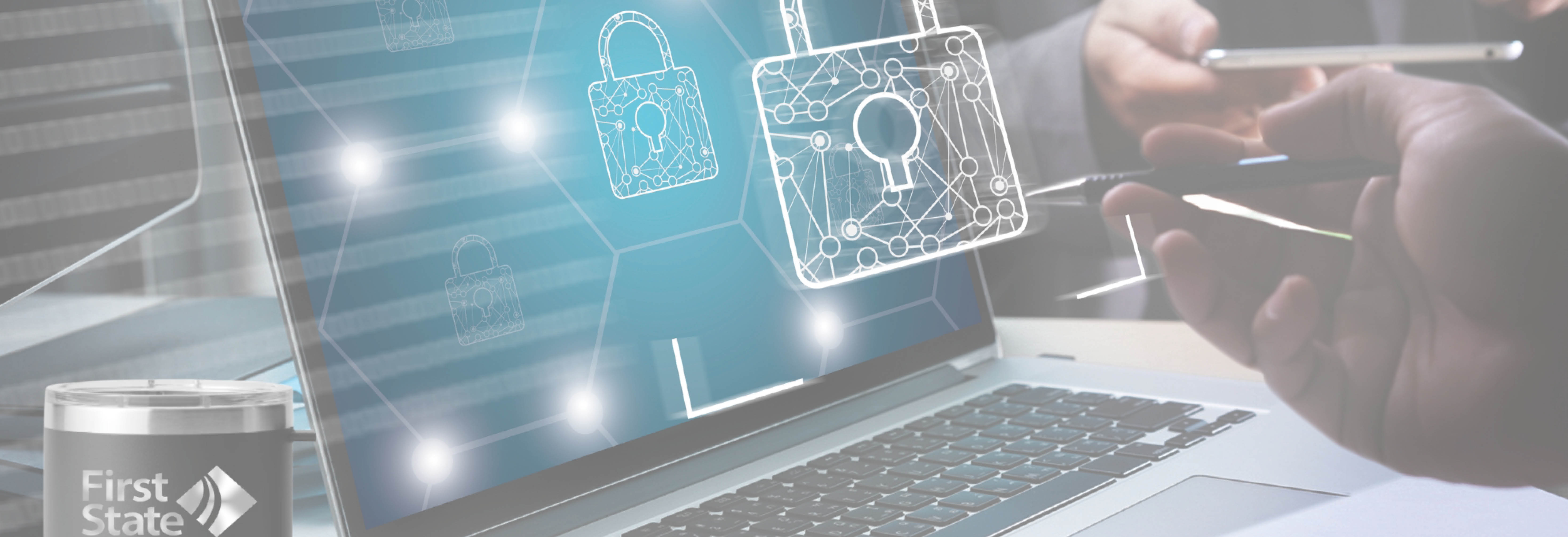
Protecting your Small Business from Cyber-Attacks
Did you know small businesses are one of the most common targets for hackers? That’s because cyber security is often overlooked by small businesses. Understanding common cyber-attacks and following our five tips can help protect your small business.
Why are small businesses targeted?
While all businesses are at risk of a cyber-attack, small businesses often lack cyber protocols, which make them an easier target. A large majority of small businesses also don’t have a dedicated IT department to protect them, and the staff they have is not trained in cyber security.
Cyber-attacks don’t just put the company at risk, they also put their customers in a compromised position. When hackers access a company’s information, they could potentially steal social security numbers, medical records, bank account information, and other personal details of the company’s customers. Once they have this information, they either sell it or hold it for ransom.
Consequences of a data leak can result in customers taking their business elsewhere along with revenue loss, damage to brand reputation, online vandalism, and so many other hidden costs. For small and medium sized companies, cyber-attacks are really concerning. According to the U.S. Securities and Exchange Commission, about 60% of small businesses shut down within six months of an attack.
Securing your business might seem like a hefty task, but it doesn’t have to be. Once you understand the common attacks and know a few tips to further protect your business, you’ll be better equipped to protect your small business.
Common Cyber-Attacks
- Phishing
Phishing is when malicious actors send messages pretending to be a trusted person or company. When the email is opened by an unsuspecting employee and they click on the bad link, the attacker will gain the employee’s account credentials and other confidential information. They can also install malware to the device through a phishing attack.
- Malware
Malware is an umbrella term for various malicious software viruses including worms, spyware, ransomware, adware, and trojans, which disguises itself as legitimate software. Malware relies on a person’s vulnerability. Once an employee clicks a bad link, it downloads malicious software infecting the device and causing harm to your business’s system.
- Password Attack
This attack is when a hacker cracks a person’s password with different programs and passwords cracking tools and uses their password to access and steal a company’s secure data.
Tips to better maintain cybersecurity for small businesses.
Get ahead by using these tips to further protect your small business from a cyber-attack.
- Train employees.
Nearly half of small businesses contribute human error as the reason for their cyber-attack, according to CNBC. This can be caused by accidental loss of a device by an employee, employees opening an email with malware attached to it, not having strong passwords, and so many countless other preventable acts. There are many online companies you can subscribe to that offer training videos and activities that can keep you and your employees in the know on the latest information.
- Have a strong password policy.
A strong password is essential when it comes to cyber security. A great password consists of numbers, letters, symbols, and should be AT LEAST 20 characters long. The more difficult the password is, the harder it is to crack. Make sure your system requires your employees to have a strong password and to change it frequently.
- Install antivirus software.
Having antivirus software will protect all devices from viruses, phishing scams, spyware, and ransomware. When selecting your antivirus software, make sure it not only protects against infection, but that it also has the ability to clean your devices to their pre-infected state. Make sure to keep the software up to date to be as effective as possible.
- Set up a firewall.
A small business’s priority should be to have a firewall in place. A firewall is a network security device that monitors traffic to or from your network. It allows or blocks certain data based on preset security rules.
- Utilize multifactor authentication.
Multifactor authentication provides an extra layer of protection that goes beyond a password and a username by having a user enter a code sent to a separate device. It ensures that it’s you logging in, and not a cybercriminal with your stolen credentials. You should require multifactor authentications for all accounts that have access to secure information.
Cyber security is one of the most important areas for any small business to invest in. By understanding the common cyber-attacks and implementing our five tips above, your business will be better protected so you can focus on what you do best.

-
View Allochuko evidence | Jul 11th 2023 @ 12:20 PM
In the connected digital world of today, small businesses are becoming vulnerable to cyber threats increasingly frequently. Owing to their lack of resources and competence,...